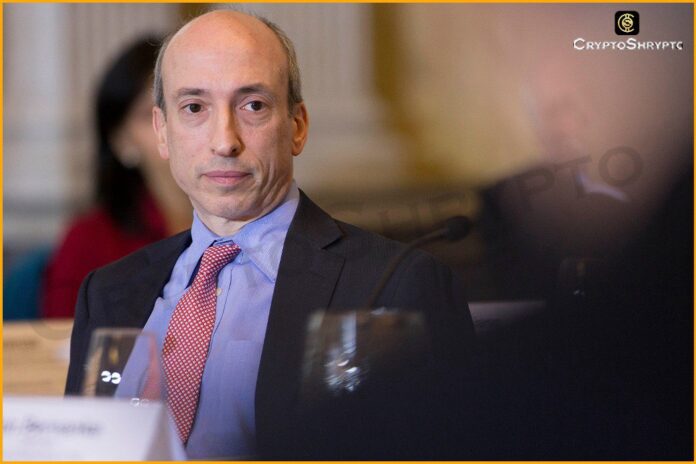In a series of posts on the social media platform X (formerly Twitter), United States Securities and Exchange Commission (SEC) Chair Gary Gensler addressed the crypto community, raising concerns about potential non-compliance with federal securities laws by asset managers offering crypto investment vehicles. Although Gensler did not explicitly mention spot Bitcoin exchange-traded funds (ETFs), his remarks come at a crucial time as several issuers await approval or denial of their spot Bitcoin ETF applications.
Gensler emphasized the inherent risks associated with crypto investments, highlighting their volatility and susceptibility to fraud. He warned that fraudsters are exploiting the popularity of crypto assets to lure retail investors into scams, including bogus coin offerings, Ponzi and pyramid schemes, and outright theft by project promoters disappearing with investors’ money.
The SEC chair’s comments, posted at 3:40 pm UTC, coincided with the filing of amended S-1 applications by several spot Bitcoin ETF issuers, including Valkyrie, WisdomTree, BlackRock, VanEck, Invesco, Galaxy, Grayscale, ARK Invest, 21Shares, Fidelity, Bitwise, and Franklin Templeton. These filings represent one of the final steps toward potential approval of the investment vehicle in the United States.
Criticism has mounted against Gensler for the SEC’s delay in approving a spot crypto ETF, despite numerous applications from asset managers over several years. In contrast, regulators in Canada permitted the listing of spot Bitcoin ETFs on exchanges in 2021.
While the S-1 filings on Jan. 8 were expected, they do not guarantee approval, and the SEC retains the option to deny applications. However, any denial would likely require different reasons than those previously used for other ETFs. In August, a federal judge ordered the SEC to revisit a spot BTC ETF application from Grayscale, citing the commission’s “arbitrary and capricious” denial of the investment vehicle. The crypto community eagerly awaits the SEC’s final decision on these applications, with the potential for significant implications on the future of crypto investments in the U.S.




